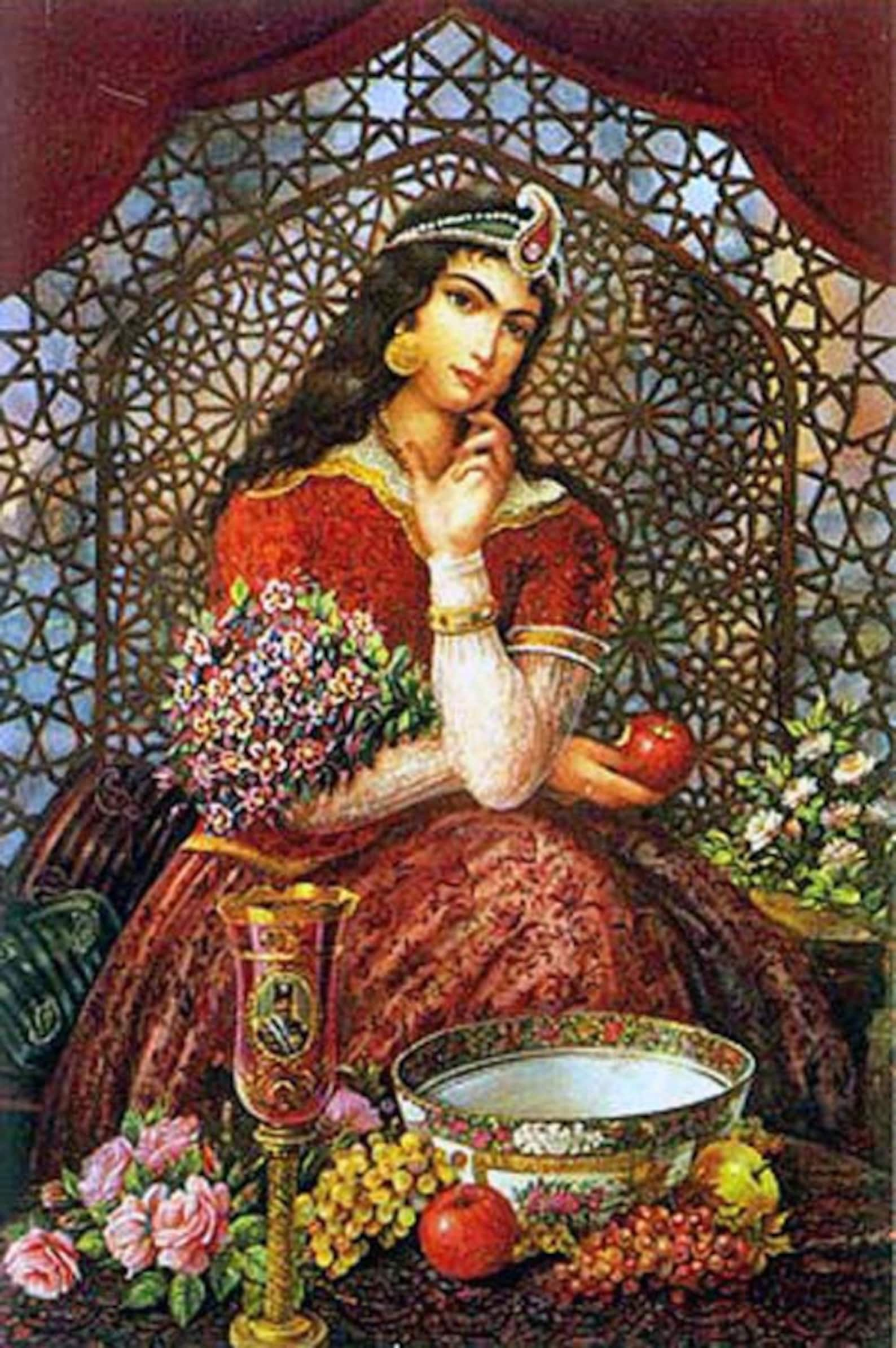
Antique Persian Classical Art Persian Princess Painting Etsy
Persian art or Iranian art ( Persian: هنر ایرانی, romanized : Honar-è Irâni) has one of the richest art heritages in world history and has been strong in many media including architecture, painting, weaving, pottery, calligraphy, metalworking and sculpture.

Antique Persian Classical Art Persian Princess Painting Etsy
The Metropolitan Museum of Art: Masterpiece Paintings. The Metropolitan Museum of Art: New York, 2016 See more. Gough, Michael. "Alahan Monastery: A Masterpiece of Early Christian Architecture.". The Metropolitan Museum of Art. "Part 2: The Persian Expedition 1933-1934." Metropolitan Museum of Art Bulletin, v. 29, no. 12 (December, 1934.
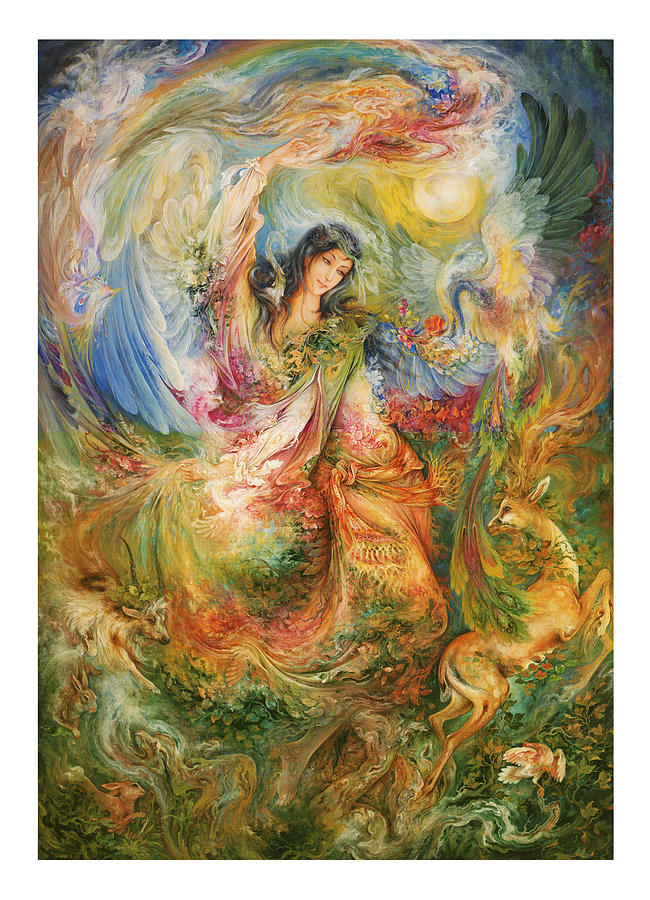
Persian Miniature Oil Painting DR28 Painting by Salma Pixels
Painting by Riza-yi 'Abbasi Iranian. dated 1039 AH/1630 CE. Not on view. The artist Riza‑yi 'Abbasi revolutionized Persian painting and drawing with his inventive use of calligraphic line and unusual palette. He painted The Lovers toward the end of a long, successful career at the Safavid court. The subject of a couple entwined reflects a.

Masterpieces of Persian Miniature, Artist Ostad Hosein Behzad, Iran in 1960 Gallery of
Iranian art, also known as Persian art, is known for having one of the most illustrious art heritages throughout human history. From ancient Persian art, right up to today - the style has influenced many mediums, such as Persia paintings, Persian sculptures, and Persian architecture, to name but a few.

Haft Seen painting Persian New Year Persian Pinterest Persian, Paintings and Iran
A Persian miniature ( Persian: نگارگری ایرانی negârgari Irâni) is a small Persian painting on paper, whether a book illustration or a separate work of art intended to be kept in an album of such works called a muraqqa. The techniques are broadly comparable to the Western Medieval and Byzantine traditions of miniatures in illuminated manuscripts.

Fine art painting print Persian contemporary art Persian Wall Art Canvas Art Persian
Persian art and architecture in the present day is associated with the nation of Iran and usually designated as beginning with the Achaemenid Empire (c. 550-330 BCE) but has an even longer history with its origins dating back to before the Persians arrived on the Iranian Plateau sometime in the 3rd millennium BCE.
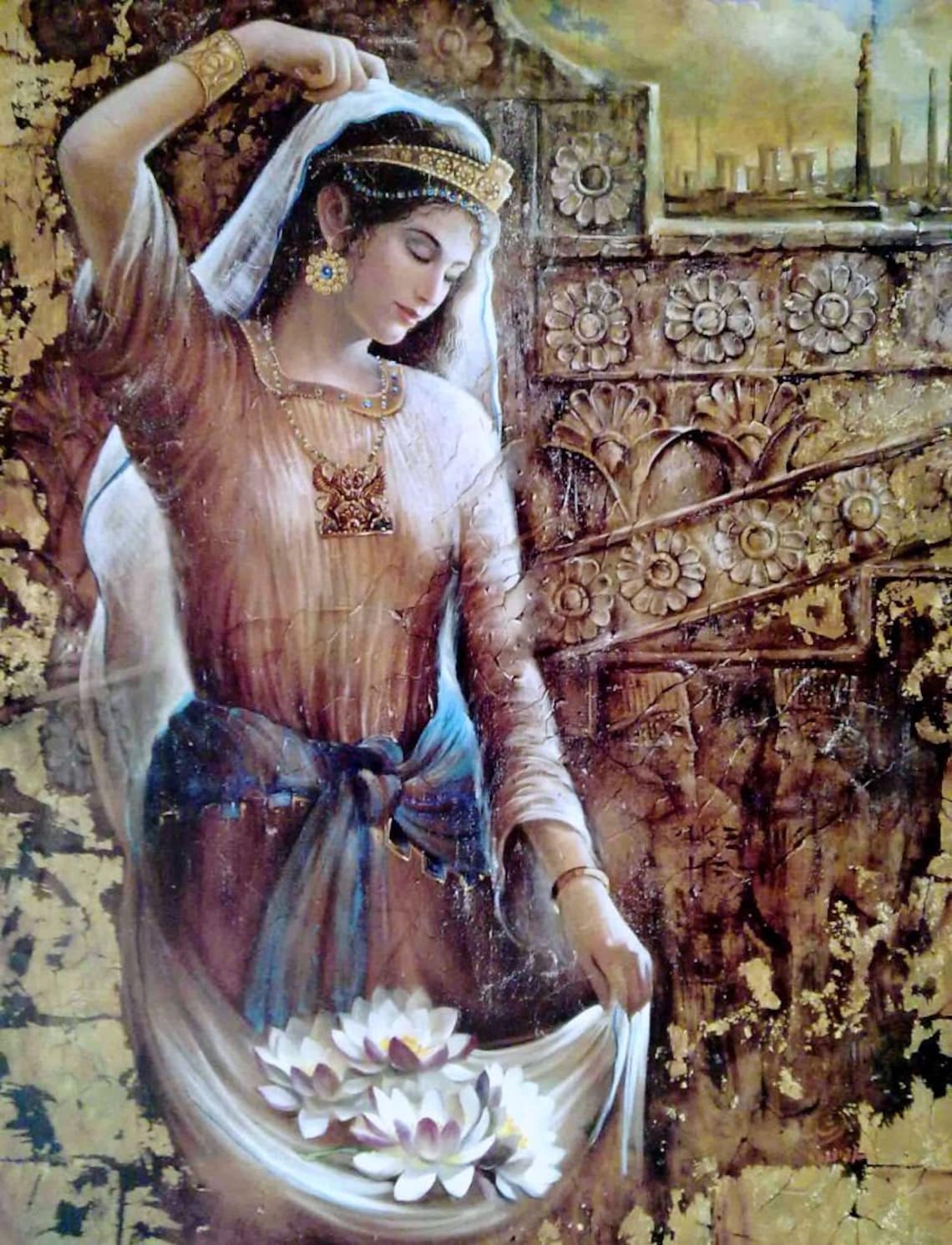
Antique Persian Classical Art Persian Princess Painting Etsy
What is known as the "golden age" of Persian painting began in the 14th century during the reign of the Turko-Mongol Timurids. During this time the art of the book was refined; calligraphy was developed further and the miniature became a notable genre (Fig. 4).
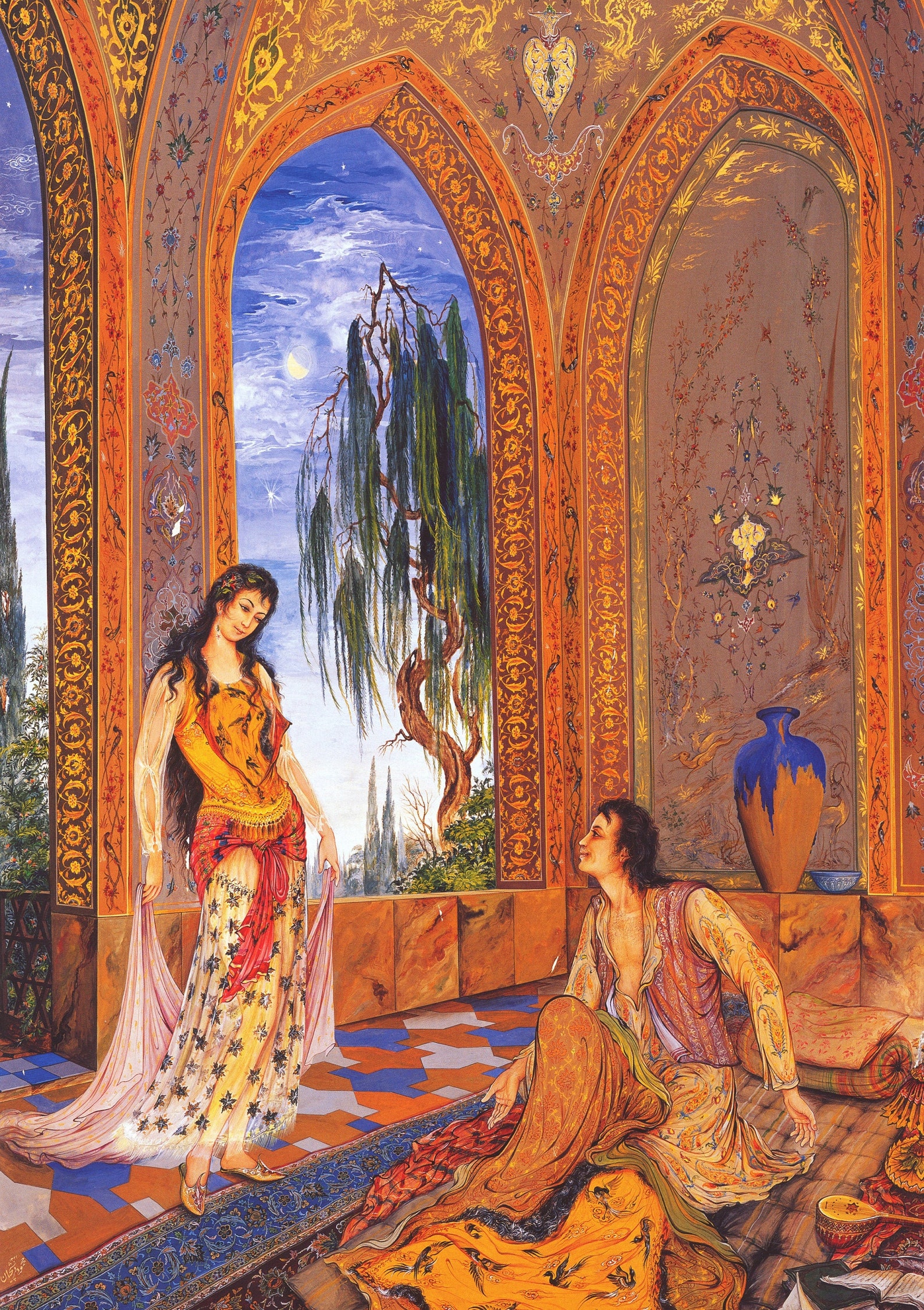
Persian Classical Art Painting Print Wall Decor Etsy
In other cases, the European works provided new technical devices, which local artists combined with elements of traditional Persian painting. Modeling, foreshortening, spatial recession, and the medium of oil painting were all adopted by Persian artists but were employed in depictions of familiar subjects or in combination with traditional.

Persian miniature intimidation by Majid Mehregan مجيد مهرگان Ancient persian art, Persian
Painting 11 x 6¼ in (27.8 x 15.7 cm); folio 14 x 9¼ in (35.4 x 23.2 cm). Sold for £313,250 on 4 October 2012 at Christie's in London. Right: A Heavily Armed Uzbek, Safavid Iran, mid-16th century. Miniature 6⅞ x 4⅛ in (17.3 x 10.5 cm); folio 13⅞ x 9⅜ in (35.4 x 23.9 cm). Sold for £199,250 on 5 October 2010 at Christie's in London

Pin by srilekha on Pinturas Persian girls, Beauty art, Persian women
Iranian miniature paintings, ceramics, sculptures, book art and metal work are in huge demand worldwide due to the intricate detailing and innovative techniques used to create the artwork. Iran has a rich heritage and art history and there are six key milestones which make the legacy of Iranian art really powerful.

Images For > Persian Miniature Farshchian Persian art painting, Iranian art, Islamic art
Persian art, often known as Iranian art, is a broad category of visual arts that includes calligraphy, weaving, ceramics, painting, sculpture, and metalwork. As the historical realm of Persia expanded, Persian art exchanged and absorbed numerous influences from its neighbors, which had an impact on the aesthetic of the works produced.

Persian Ancient Islamic Paintings Beautiful View
Persian miniature painting is a courtly and aristocratic art, with exquisite colors, balanced compositions, and meticulous attention to detail.
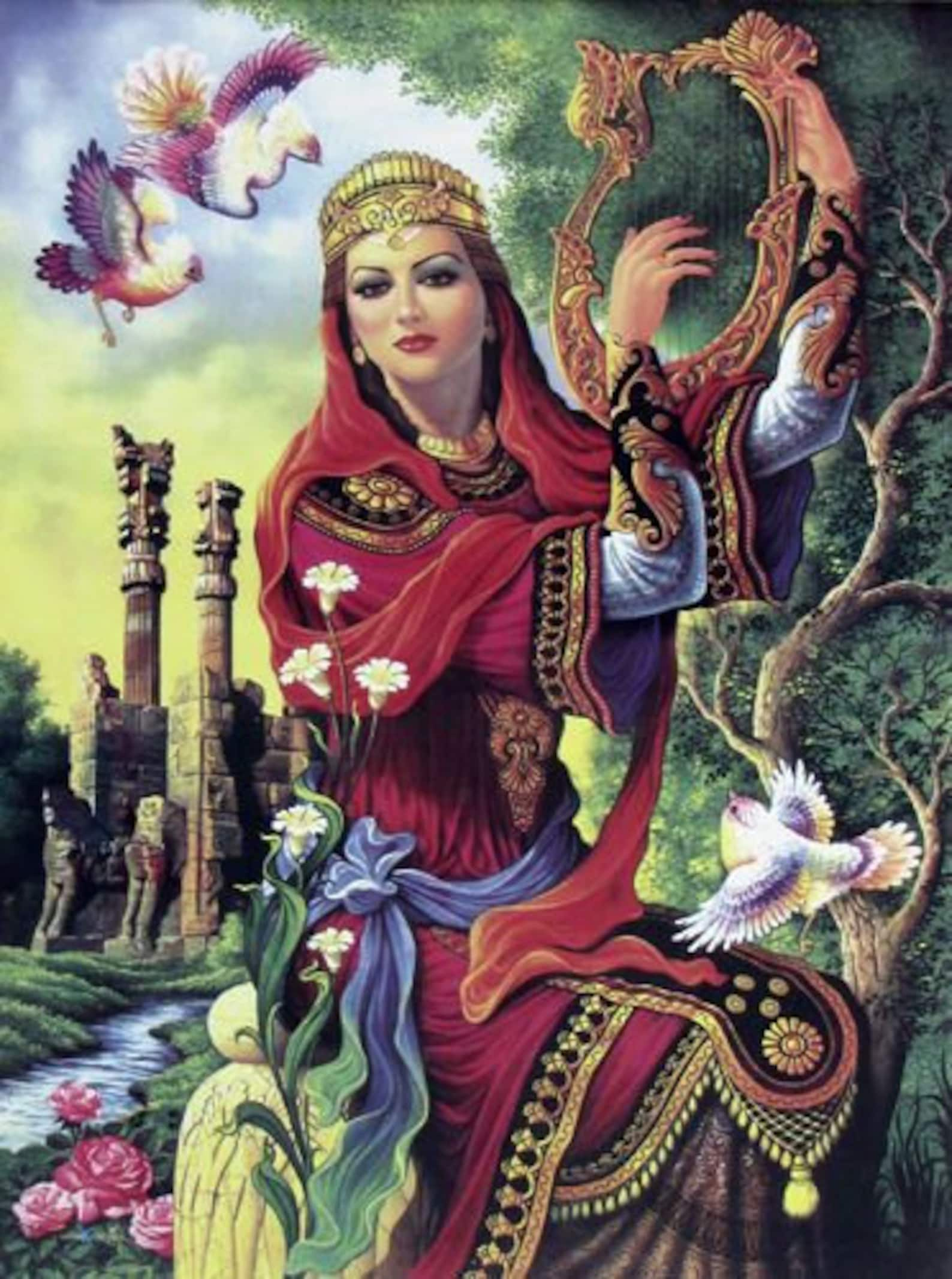
Antique Persian Classical Art Persian Princess Painting Etsy
Persian art, an introduction Google Classroom The heart of ancient Persia is in what is now southwest Iran, in the region called the Fars. In the second half of the 6th century B.C.E., the Persians (also called the Achaemenids) created an enormous empire reaching from the Indus Valley to Northern Greece and from Central Asia to Egypt.

Pin by abolfazl Mirzabeygi on art Persian art painting, Iranian art, Persian beauties
Persian art or Iranian art ( Persian: هنر ایرانی, romanized: Honar-è Irâni) has one of the richest art heritages in world history and has been strong in many media including architecture, painting, weaving, pottery, calligraphy, metalworking and sculpture.

Persian Art A History of Ancient Persian Paintings and Iranian Art
Since the establishment of the Ilkhanid Dynasty, Chinese painting has exerted a profound influence on various facets of Persian painting. This influence facilitated the divergence of Persian painting from Arab painting, fostering the gradual formation of an independent style. To explore whether Zen painting, which has been highly influential in contemporary China, also played a role in shaping.
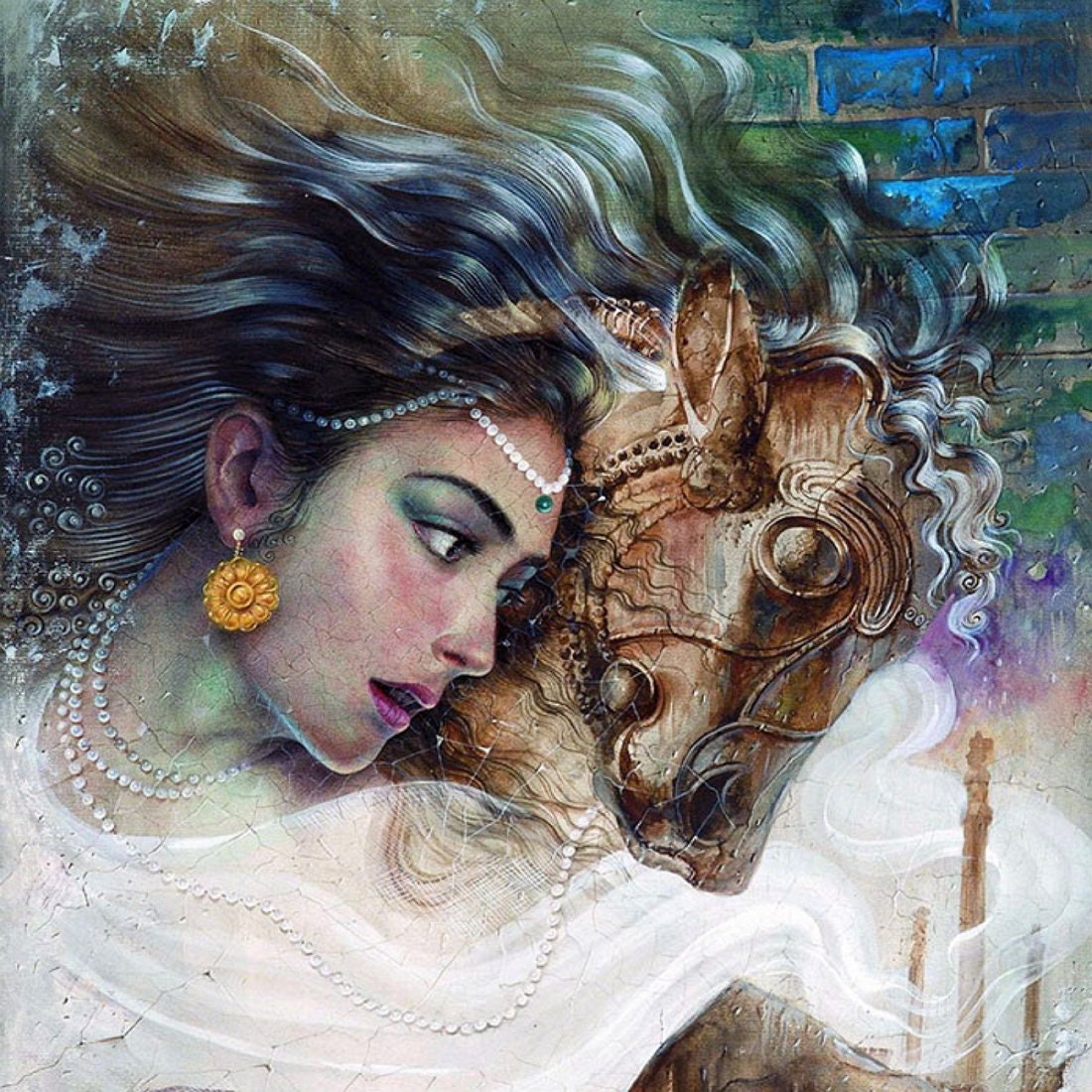
Antique Persian Classical Art Persian Princess Painting Etsy
Rose-and-nightingale paintings and patterns ( gul-u-bulbul) are a subtheme of the bird-flower ( gul - u - morḡ) genre in Persian art. Bird-and-flower paintings are of Chinese origin and include pictorial elements such as flowers and plants, birds, and occasionally butterflies. This motif was then appropriated by the Persians and throughout.